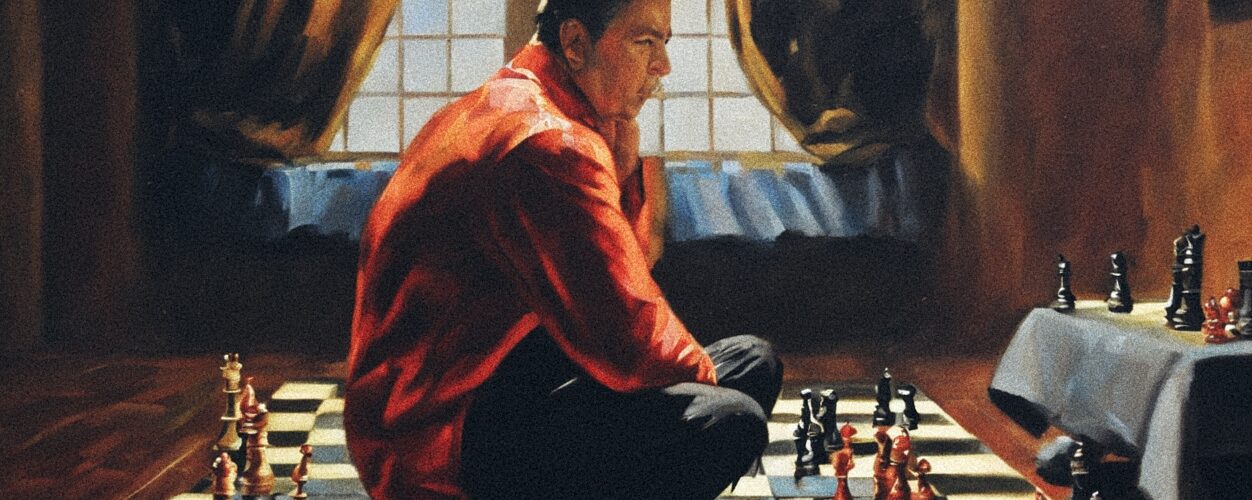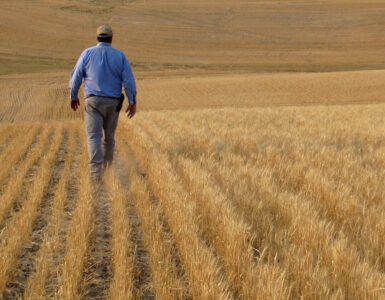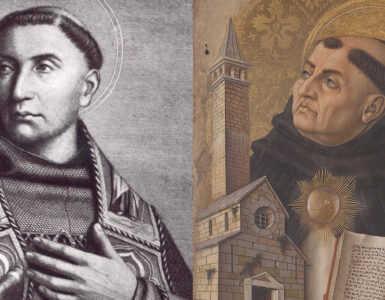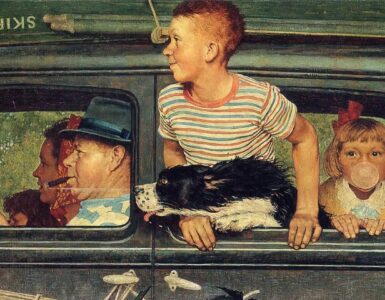About forty years ago, a ten-year-old boy named Dave was taught how to play chess by his grandfather, a World War II veteran. They played frequently, and, after three years of trying, Dave, at age 13, finally beat his grandfather. As he helped him put the pieces away, he noticed something for the first time: dozens of names and dates written on the back of the chessboard. “What’s this, Grandpa?” Dave asked, and his grandfather explained that whenever someone beat him at chess, he let the player write down his or her name—including fellow soldiers during the war, the nurse who cared for him in a military hospital, and the soldier who carried him to safety after he was seriously injured, and who later visited him in the hospital while he was convalescing. Then Grandpa allowed Dave to write his name there, too. In the years that followed, the two of them had many more games together—which Grandpa usually won. Then Dave went off to college, and graduated with a degree in social work. Returning home, he again played chess with his grandfather. After their game he gave Dave the chess set, saying “I want you to have this.” Dave tried to refuse, but his grandfather insisted, telling him, “This is how life works: we pass along our love to the next person.” It turned out to be their last game, as Grandpa died soon afterwards. Dave was heartbroken, but determined, in his work as a social worker, to honor his grandfather’s lessons and legacy.
Dave was soon hired to be a social worker for a retirement community. After lunch he noticed many of the residents wandering aimlessly on the grounds. There happened to be several concrete tables with chessboards imprinted on them, so he set up his pieces and waited. No one came the first day, but on the second day an elderly man named Paul hesitantly approached and asked to play. Dave won easily, as Paul seemed out of practice, but the next day during the lunch hour Dave found Paul playing against another resident. Before long there were almost twenty residents playing chess outdoors each day—so many that they were running out of chessboards. Dave brought his grandfather’s board and set it up, and Paul came and asked for a rematch. While they were playing, Paul said, “You know, young man, before you came along, I rarely left my room; I had pretty much given up. But now, I’ve connected with old friends and made new ones. This may sound silly, but I think our informal chess club may have saved my life.” Then Paul made his move on the board and triumphantly announced, “Checkmate!” Dave congratulated him, shook hands, and said, “Paul, my grandfather had a custom: the winner gets to sign his name on the back of the board.” Paul smiled and said, “I already did—there in the upper right hand corner.” Dave looked closely, and saw it was the name of the soldier who had saved his grandfather’s life during the war—and now the favor had been returned (Amy Newmark, Miracles and the Unexplainable, p. 57).
Dave’s grandfather had greatly influenced him by his example of goodness and humility, and because Dave carried on that tradition, an elderly man named Paul found renewed meaning and joy in life. Humility not only lets us serve others; it also allows God to bless us in unexpected ways.
If we wanted to diagnose what’s wrong with the world and humanity today, the Letter of St. James (3:16-4:3) would be a good place to start. He tells us that wars and conflicts arise from jealously and envy, and from pride and selfish ambition—whereas peace is a fruit of righteousness, and is rooted in wisdom, mercy, and humility. This was the lesson Jesus (Mark 9:30-37) was trying to teach the apostles. He warned that He Himself would be victimized by the hatred and resentment of His enemies, as foretold in the Book of Wisdom (2:12, 17-20)—so the last thing He wanted was for His own followers to give into pride and selfishness. As Our Lord explained, true spiritual greatness lies in a willingness to serve others—and those who choose this way of life will never be lacking in true peace, inner freedom, and the generous blessings of their Heavenly Father.
Years ago it was the custom in farming villages for the church bells to ring at twelve noon; laborers out in the fields would stop working, bow their heads, and pray the prayer called the Angelus. A self-important lawyer noticed a farmer doing this, and in his pride he said, “Why don’t you hold your head up high, the way I do? I bow before neither God nor man.” The farmer answered, “See that field of wheat over there? Only the empty wheat stalks stand up high; the ones filled with grain bow their heads low” (Roy B. Zuck, The Speaker’s Quote Book, p. 203).
According to the great 4th century bishop St. John Chrysostom, “Humility is the mother, root, nurse, foundation, and center of all other virtues” (op. cit., p. 201). In other words, if we lack humility, we’ll be too busy trying to get ahead in the world and thinking of ourselves to notice or respond to God’s grace—and in the process, we’ll waste the opportunities and blessings the Lord provides for us to grow in His grace and achieve our mission in life. If we give into pride and self-importance, it becomes very easy for the devil to mislead us, control us, and, ultimately, destroy us. On the other hand, the more we strive for humility while on earth, the greater will be our glory and happiness in Heaven. That being the case, we should constantly seek to be humble—by sometimes giving in to other people, instead of always insisting on having our way; by making time for someone else in need, even when it’s inconvenient; by remembering that every good thing we do or achieve is ultimately due to God’s grace, not our own efforts; by readily owning up to our mistakes, instead of making excuses for ourselves, by taking the time to truly listen to others, instead of giving them only half of our attention; by thinking of how we might be of service to the people around us, instead of putting our own needs and desires first; and by asking the Lord what He wants us to do in any given situation, instead of automatically acting according to our own preferences and desires.
If Dave’s grandfather had been proud, he wouldn’t have recorded all the times he lost in chess; instead, his good example influenced his grandson, and that led to true blessings for many people. We are invited to be part of this same dynamic—for when we live in a spirit of humility, God’s grace becomes more powerfully present and active in the world.





























